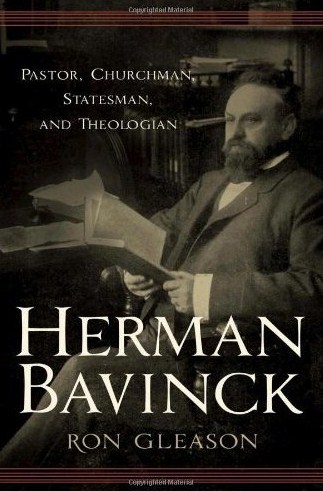Book Review: Herman Bavinck


Herman Bavinck: Pastor, Churchman, Statesman, and Theologian, Ron Gleason, Phillipsburg: P&R, 2010. Paperback, 511 pages, $29.99.
Over the last decade we’ve seen a surge of interest in the great Dutch theologian Herman Bavinck (1854-1921). With the translation of his monumental four-volume Reformed Dogmatics, the English-speaking Reformed world is finally coming to recognize the valuable contributions of Bavinck to theology. His influence upon men like Louis Berkhof and Cornelius Van Til was legendary, but now the evidence is readily available to everyone. The only thing missing has been a book-length biography of this giant. We’ve had some biographical essays in various books and journals, but nothing to compare with what has been available in Dutch. Ron Gleason’s volume has therefore been much anticipated.
Gleason himself has a unique biography that qualifies him for writing this work. He is an American, but his theological training includes time spent at the Free University in Amsterdam. He served as a pastor in a Liberated (Vrijgemaakt) Reformed Church in the Netherlands. His proficiency in Dutch allowed him access to both primary and secondary sources for the research of this biography. Canadian Reformed readers may remember Dr. Gleason for his years spent pastoring the Bethel Canadian Reformed Church in Toronto, Ontario. Currently he serves as the pastor of the Grace Presbyterian Church (PCA) in Yorba Linda, California.
It’s not my intent to rehearse Bavinck’s biography here in this review. It will suffice for me to say that Gleason covers the full breadth of Bavinck’s years. He surveys his family background, his upbringing, his theological education, his marriage and family life, his first and only pastorate, his years teaching at the seminary in Kampen, his time at the Free University in Amsterdam, his role in various church disputes, and his political involvement. There’s a lot of detail and the story is generally well-told. A couple of highlights: Bavinck visited Toronto in 1892. Gleason reports on Bavinck’s impressions of what was then known as “Toronto the Good”: “The Puritanical principle dominates there visibly and clearly” (148). Later in life, Bavinck made another trip to North America and this included a brief visit with U.S. President Theodore Roosevelt (361).
We often read biographies not only to give us a sense of who a person was, but also to understand the issues of days gone by. Sometimes the issues are similar to ones we face today. In the discussions regarding a merger of the Canadian Reformed and United Reformed Churches, one of the big and (to this date) unresolved issues has been theological education. Should a united church federation have its own seminary or should this be left to outside institutions? Can we do both? Before and after the union of the Secession (Afscheiding) and Doleantie churches in 1892, Herman Bavinck also dealt with this issue. He taught at the federational seminary in Kampen for many years. But yet he also had many friends and contacts within the Free University in Amsterdam. Later, with matters still unresolved, he went to teach there. These were thorny issues then and they remain so. Bavinck’s biography provides a cautionary tale about what happens when church unions are forced without resolving real differences.
There is nothing like Gleason’s book in English. For that reason alone, it needs to be in the hands of pastors, aspiring pastors, scholars, elders, and interested lay-people. However, not only will people with a theological bent benefit, but also those with an interest in politics. Towards the end of his life, Bavinck served as a politician. He was elected to a position in the Dutch government and gave careful thought to the application of Christian principles to the political realm.
Unfortunately, the book does have some problems. There are numerous typos and formatting errors. The footnotes (especially the biographical ones) are sometimes repetitive, as is the text. Sometimes the book suffers from a lack of clarity. As an example in chapter 16, Gleason deals with the question of whether Bavinck changed theologically later in life. Initially, he says that Bavinck didn’t change (399). But then three pages later, the answer becomes “yes and no” (402). A sharp editor would have caught this. Basically the problems in this book boil down to poor editing. My hope is that a second edition will someday resolve these infelicities and make a good book even better.
Despite those foibles, I enjoyed this biography. Gleason’s writing is lively and there are often humorous moments. Most importantly, he loves Bavinck and it shows. The book concludes with several appendices including summaries of two sermons by Jan Bavinck (Herman’s father) and a summary of Herman Bavinck’s inaugural address when he began his career at Kampen. I’m glad to see that English-speaking readers can finally get the full story of this imposing and multi-faceted figure in our Reformed church history.


